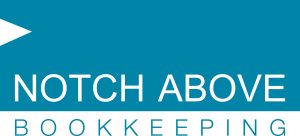What small businesses need to know about changes to STP this EOFY
As a small business owner, you’ve likely heard about Single Touch Payroll (STP) by now.
Many employers will already be using STP. However, with the ATO rolling the initiative out in stages, there are still some that have been offered exemptions. That is, until now.
From 1 July this year, most small businesses will need to be STP compliant.
This includes small employers with closely held payees, as well as some micro-businesses and seasonal employers. The changes could mean that you have to opt into STP for the first time or start filing employees who aren’t already being reported with the ATO. If you’re feeling unsure about whether these changes will affect your business, we’ve compiled all the information you need to help determine your next steps.
Although EOFY is just around the corner, there’s still time to get prepared. With the help of your bookkeeper and Xero, together, we can make the transition to STP as smooth as possible.
What does ‘closely held’ mean?
According to the ATO a closely held payee (otherwise known as a closely held employee) is an individual directly related to the entity from which they receive payments. For example, this would include relatives in a family business, or beneficiaries of a trust fund.
Depending on your working arrangements, some businesses process irregular or infrequent pay runs for family members on their books. That’s why, up until 1 July 2021, small employers (with 19 or fewer payees) have been exempt from STP reporting of closely held payees.
What’s changing with how my business remunerates closely held payees?
By the end of FY21, employers with fewer than 19 employees will have to report closely held salaries or wages through STP. Whether it’s your sister, great-uncle, cousin or in-law, every family member on your books, counts. There are three payment reporting requirements to be aware of:
- Report and process payroll through STP on or before payday
- Report the accurate payroll amount with STP once per quarter, on or before the BAS due date
- Report a reasonable estimate with STP once per quarter, on or before the BAS due date
Out of the three reporting options, there’s no one-size-fits-all approach – it comes down to what works best for your business’ needs.
Are there any other changes to know about?
As well as small employers with closely held payees, some micro and seasonal employers will now have to report on or before the payment date – not quarterly – unless they receive a concession. This includes businesses with four or fewer employees, including the following industries:
- Agriculture, fishing and forestry
- Not-for-profit clubs and associations
- Seasonal and intermittent employers
Microbusinesses in each category may still be eligible for STP reporting concessions, such as quarterly or exceptional circumstances exemptions. Ask your advisor about how you can apply for a concession, and head over to the ATO website for more details.
The STP changes for this EOFY are one of the final hurdles in transitioning most Australian small businesses to a more streamlined reporting system. Although the initiative is still evolving, with the support of Xero and your trusted bookkeeper, you’ll be able to tackle any new changes head-on.
Notch Above Bookkeeping has been providing business owners with accurate and timely bookkeeping services that makes them more efficient and gives them peace of mind for 15 years. Let us help take your business to the next level of bookkeeping digitally, via the cloud! Call us on 1300 015 130.


